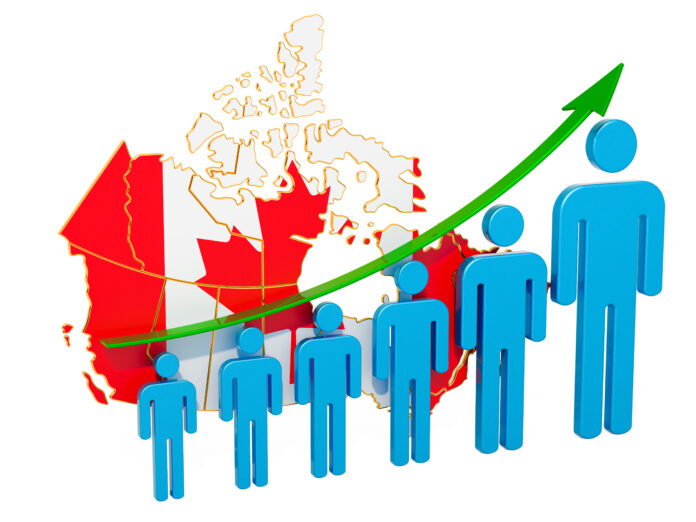
There is increased doubt about the sustainability of Canada’s immigration policy despite it being the source of much-needed fuel for various sectors across the economy.
According to the Northern Trust economic review, newcomers to Canada have significantly contributed to its record population growth in 2022. That year, Canada welcomed 437,180 immigrants and saw a net increase in the number of non-permanent residents estimated at 607,782.
This highlights the sheer force of the newcomer population in Canada, which contributes to industries such as healthcare, IT, construction and engineering, financial services, education, and energy.
However, many are questioning Ottawa’s current approach, according to BNN’s Sakchi Khandelwal. Not just policy and political gurus, but the government is also partaking in this conversation, as highlighted by the Trudeau administration’s recent study permit caps. Moreover, public opinion on immigration is shifting towards the negative, with some advocating for a reduction in numbers to alleviate immediate pressures on public services and housing.
There is another camp that disagrees with the skeptics, arguing instead for a much-bolstered immigration program to counter-balance Canada’s ageing population.
Read More Canada Immigration News
More Than A Third Of International Student Allocation Wanted By Ontario Universities
Refugees From Tanzania and Mexico Eligible For Canada’s Economic Mobility Pathways Pilot
Intake For Alberta Opportunity Stream Temporarily Paused To Address Backlog
A Desjardins report from last year analyzed how much population growth among working-age Canadians is necessary to maintain the old-age dependency ration, which is the difference between 15 to 64-year olds and those aged 65 and older.
This discussion is evolving, and Immigration Minister Marc Miller has emphasized the need for better planning and integration to fix the problems plaguing the Canada Immigration Program.
The new approach needs to play a careful balancing act, wherein not only does it ensure that the influx of talent aligns with Canada’s economic needs, but it also considers the social and infrastructural capacities to support this growth.
This was the approach being furthered by Immigration Canada through the 2024-2024 Immigration Levels Plan.
Watch Video
“Immigration drives Canada’s economy and fuels its future growth,” read the news release from November of last year. “As we continue to face an aging population and critical labour shortages in key sectors like health care, transportation and home building, newcomers are critical to help spur innovation, grow the economy, and support local businesses and communities.”
“The Honourable Marc Miller, Minister of Immigration, Refugees and Citizenship, today tabled the 2024-2026 Immigration Levels Plan. This plan is tailored to support economic growth while balancing with the pressures in areas like housing, healthcare and infrastructure. It charts a responsible course for sustainable and stable population growth.”
Through this plan, Ottawa maintained its target of 485,000 PRs for 2024 and furthered it to 500,000 for 2025. Starting in 2026, the government aimed to stabilize PR levels at 500,000, which will allow time for integration, while continuing to augment the Canadian labor market.

